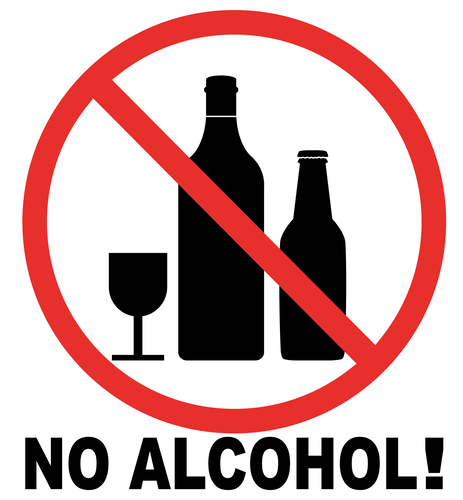100 Art Therapy Exercises The Updated and Improved List The Art of Emotional Healing by Shelley Klammer (MET) is a counseling approach designed to foster rapid internalized change by helping individuals strengthen their motivation and commitment to change their behavior. Motivational Enhancement Therapy can also be coupled with Medication Assisted Treatment (MAT) when appropriate, for an ideal and holistic treatment approach. The Smithers Center is a specialized service offered by ColumbiaDoctors that provides treatment for those who are looking to change their substance use and have co-occurring mental health conditions. After an initial assessment, MET is comprised of 4 targeted treatment sessions.

This process fosters a sense of discomfort with the status quo and motivates clients to take steps towards behavior change. Research has consistently demonstrated the efficacy of MET in increasing one’s readiness https://en.forexdata.info/after-work-wine-the-dangers-of-drinking-to-cope/ to stop drug use, reducing the severity of substance use, and in lengthening periods of abstinence. This type of therapy may even be of help to persons who are at risk of developing these conditions.
Origins of Motivational Enhancement Therapy
The MET process begins with an initial assessment, during which the therapist gathers information about the client’s history, substance use patterns, and relevant psychosocial factors. This assessment helps the therapist understand the client’s unique situation, identify potential barriers to change, and tailor the intervention to meet the client’s specific needs. Empathy is a fundamental principle of MET, as it helps to create a supportive and non-judgmental environment for clients. Therapists express empathy by actively listening, validating clients’ feelings and experiences, and demonstrating genuine understanding and compassion. This empathic approach fosters trust and rapport between the therapist and client, making it easier for clients to openly discuss their ambivalence and resistance to change.
Studies further suggest that MET can help stimulate positive changes in health-risk behaviors among youth living with HIV. MI/MET has also been combined with other types of interventions, such as cognitive-behavioral approaches, serving primarily as an initial way to enhance readiness to change substance use or to engage in treatment. These are designed to address ambivalence and empower the client to find their internal motivation for change. During these interactions, we adopt a client-centered approach that helps individuals explore their reasons for change and possible steps they could take. MET emerged in the early 1990s, responding to the need for effective, brief intervention, specifically in the treatment of substance use disorders.
The MET Process
Motivational Enhancement Therapy can be used alongside medication-assisted treatment (MAT) to provide a comprehensive approach to addiction treatment. MAT involves the use of medications, such as methadone, buprenorphine, or naltrexone, to alleviate withdrawal symptoms and reduce cravings, while MET helps to address the psychological and motivational aspects of addiction. When used together, MET and MAT can improve treatment retention, enhance clients’ motivation to engage in therapy, and ultimately increase the likelihood of long-term recovery success. MET focuses on enhancing clients’ intrinsic motivation, which is the desire to change behaviors based on personal values, beliefs, and goals. Intrinsic motivation is a powerful driving force for long-lasting change, as it comes from within the individual rather than external sources.
This is not surprising because therapists want to elicit change in their clients. For a long time, motivation was overlooked as a critical component of creating change. If the client doesn’t believe they can change, they may meet their discrepancy crisis with defensive coping. This will allow the client to reduce the discomfort brought on by the discrepancy without creating change – an understandable behavior.
Who Can Motivational Enhancement Therapy Benefit?
This could happen as soon as the second session, depending on the client’s initial motivation. The tools used in this phase are reviewing progress, renewing motivation, and redoing commitment. Developing coping strategies for relapse prevention is essential for maintaining the changes brought about in MET. We emphasize relapse as a part of the process, not the end, ensuring clients understand that lapses in behavior are common and manageable. Our primary goal is to foster autonomy and empowerment to encourage clients to find their internal motivation for change.
Interventions that target motivational factors have received significant attention in the area of addiction treatment.[10,11] One of those that have a significant empirical basis is motivational interviewing (MI). Motivational Enhancement Therapy (MET) is a client-centered, evidence-based therapeutic approach designed to enhance an individual’s intrinsic motivation for change. Focused primarily on the treatment of substance use disorders, MET has also proven effective in addressing other behavioral issues. It is rooted in the principles of motivational interviewing and emphasizes a non-confrontational and collaborative relationship between therapist and client. Motivational Enhancement Therapy (MET) is a therapeutic approach aimed at helping individuals identify and resolve ambivalence regarding alcohol and other drug use. Also referred to as motivational interviewing, MET focuses on increasing motivation and setting goals.
In MET, the therapists meet the client in whichever stage they are in, and the goal is to assist them in moving through each of these stages. According to this model, the contemplation and determination stages are the most critical (Miller, 1992). The transtheoretical model of the stages of change is incorporated into the MET process. These stages can be a good framework for envisioning the process of addiction recovery. In this stage, the therapist reviews the assessments by presenting personal information that the client relayed. VA offers treatment options that are proven to be very effective for most people, and many types of professionals at VA can help treat substance use.

While both are client-centered, MET is more structured and focused, often concluded in a set number of sessions. It builds on motivational interviewing principles but combines them with a more directive approach and feedback to stimulate rapid internal change. In motivational enhancement therapy (MET), we encounter unique challenges and considerations that require a nuanced approach to facilitate change. We must understand these to effectively support our clients through their journey to recovery.
The Goal of MET
One of the essential components of Motivational Enhancement Therapy is its collaborative and non-confrontational approach to counseling. Therapists work as partners with their clients, encouraging open communication and fostering a supportive environment where clients feel comfortable exploring their thoughts and emotions. The therapist avoids directly challenging the client’s beliefs and instead uses reflective listening and open-ended questions to guide the conversation. This approach helps build rapport, reduce resistance, and facilitate meaningful discussions about the client’s readiness for change. In this article, we will explore the origins of Motivational Enhancement Therapy, its core components and principles, and the process of implementing MET in a therapeutic setting.
- Co-occurring mental health issues are common in addicted people because both disorders can be affected by imbalanced brain chemistry.
- Continue reading to learn all about this effective evidence-based treatment method.
- This empathic approach fosters trust and rapport between the therapist and client, making it easier for clients to openly discuss their ambivalence and resistance to change.